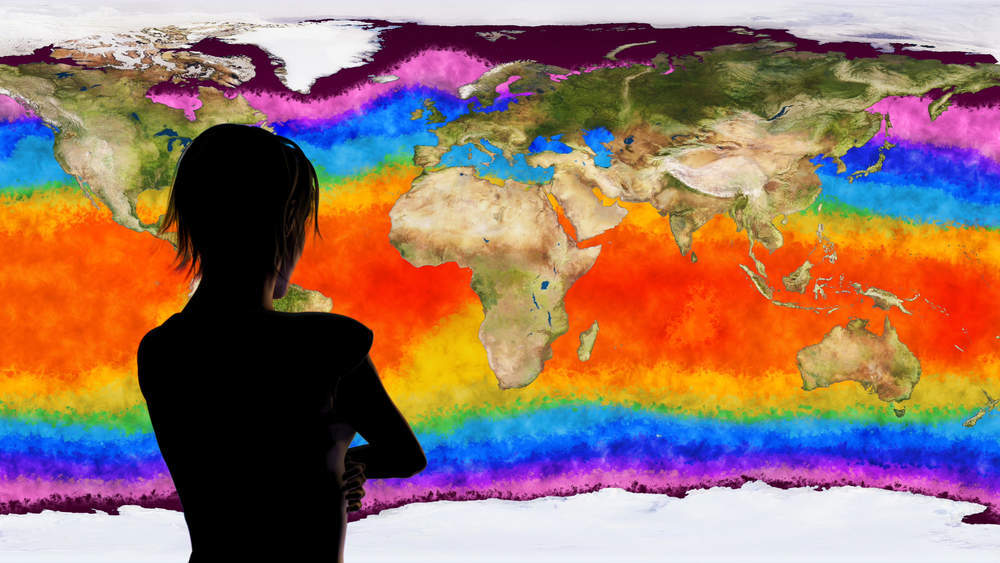
The latest United Nation’s summit on climate change has begun in Bonn, Germany, with day one discussions centred around the US absence, China’s new role in the global fight against emissions, and Germany’s increased contribution to the cause.
German politicians at the 23rd Conference of the Parties (COP23) pledged to do more to help those most at risk from climate change and increased funding for the Paris Agreement on climate change by €50m ($57m), taking its total to just under €300m.
Germany’s environment minister Barbara Hendricks said:
Our goal is to make [the Adaptation Fund] a firm part of the financial architecture of the Paris Agreement. We’re sending the clear signal that Germany stands in solidarity with people in the countries most affected by climate change.
German development cooperation minister Gerd Muller announced the additional funding, with a new pledge to the Least Developed Countries Fund used to finance adaptation in areas such as agriculture, climate information systems, and catastrophe risk management.
Speaking at a press conference Muller said:
How well do you really know your competitors?
Access the most comprehensive Company Profiles on the market, powered by GlobalData. Save hours of research. Gain competitive edge.

Thank you!
Your download email will arrive shortly
Not ready to buy yet? Download a free sample
We are confident about the unique quality of our Company Profiles. However, we want you to make the most beneficial decision for your business, so we offer a free sample that you can download by submitting the below form
By GlobalDataDroughts, hurricanes, floods – developing nations have contributed least to climate change, but carry the biggest burden. Every euro we invest in developing and emerging countries in clean technologies, in green power, in renewable energies, will achieve many times what it would in Germany.
Meanwhile, Hendricks said the US decision to pull out of the agreement wouldn’t derail the talks. She said “just a few months ago, we had reason to fear the whole shop might fall apart” but the Bonn conference would send a “strong signal of unity” on the Paris Agreement.
Us president Donald Trump decided to withdraw the US from the Paris Agreement earlier this year, sending shock waves through global climate change policy.
However the UN’s chief climate negotiator, Christiana Figueres ended up thanking Trump, and said: “[Trump’s decision] provoked an unparalleled wave of support for the treaty. He shored up on the world’s resolve on climate action, and for that we can all be grateful.”
The gap left by America’s exit from the talks is supposedly going to be filled by China — currently the world’s biggest contributor of greenhouse gases, though it has pledged to cap growth by 2030 through the use of cleaner energy.
Paula DiPerna, special adviser for environmental charity CDP North America, said:
China wants to be a leader in a global sense on climate change and green technologies.
Beijing has launched a crackdown on some of the country’s heaviest polluters, instructing some steel and coal producers to halve production in winter and installing natural gas heaters in households to reduce dependence on coal-fired generators.
Part of China’s eco-friendly reforms is the anticipated introduction of a carbon trading scheme, expected to be announced at the Bonn conference.
The scheme was first announced in 2015 by China’s leader Xi Jinping, who said it would be launched in 2017 and would become the largest of its kind — eclipsing the EU.
A carbon emissions control system would be applied to manage the cap-and-trade program covering companies with an annual energy consumption of over 10,000 tons of standard coal. The system would affect eight sectors, including chemical, electricity and aviation.
Jiang Zhaoli, deputy director of the Department of Climate Change, told the Financial Times:
The carbon market will develop gradually as a continuously improving system. Judging from the estimating quota allocation of the eight sectors, the emissions are expected to reach 5 billion tons, half of the country’s total emissions. It will make the market the biggest in the world.
Meanwhile, South Korea is set to launch an emissions trading scheme 2015, and New Zealand launched one in 2008.
Tokyo has a so-called cap-and-trade program, and Taiwan, Singapore, Thailand and Vietnam are all looking at reducing emissions through a pricing and trading schemes.
However, China’s will far outweigh the others in scale if it succeeds.
COP23 is set to be attended by some 25,000 people, with diplomats, scientists, lobbyists, and environmentalists flying in from 195 nations.
The discussions will be presided over by Fiji’s prime minister Frank Bainimarama, and it is the first time a small island will be leading an international climate conference.
Bainimarama said:
Our meeting in Bonn comes at a time when it is no longer sufficient to maintain the momentum. It is my intention to make COP23 Fiji in Bonn the occasion when we accelerated the pace of positive change and acted more boldly than we thought possible.
Fiji’s chief negotiator Nazhat Shameen Khan slammed the US decision to pull out of the Paris Agreement ahead of the conference, suggesting discussions with the US would not be valuable. He said:
You can have a dialogue (even) with somebody who is an axe murderer.





